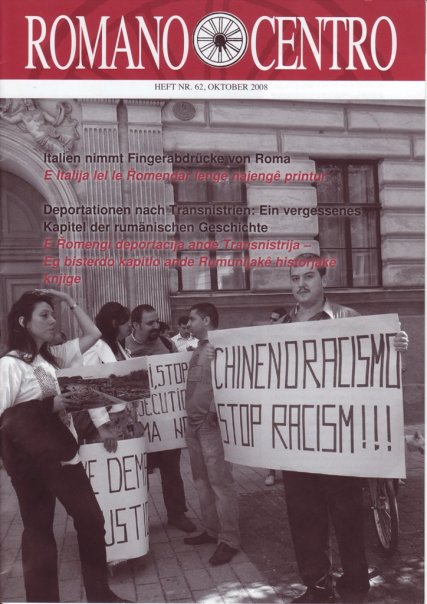“We remember the past to ensure it is not repeated in the future – thinking about the horrible suffering of the victims of the Holocaust and their families reminds us that every day we must work to end anti-Gypsyism and instead promote a culture of peace,” said Mr Rudko Kawczynski, President of the European Roma and Travellers Forum, speaking on the occasion of the International Day of Commemoration in memory of the victims of the Holocaust. The event took place in Strasbourg on 24 January, 2013, and was organised by the Council of Europe.
“International Holocaust Remembrance Day reminds us of the millions of Jewish, Roma and, disabled people, homosexuals, political opponents, Jehovah witnesses and other victims of the Holocaust. We recommitt ourselves to “keeping their memory alive not only in our thoughts, but through our actions,”said President Kawczynski.
“The European Roma and Travellers Forum therefore calls on the Council of Europe member states, European politicians and decision makers to effectively combat the rise of the far-right, which they have neglected, or worse, from whom they have borrowed ideas to gain votes. They also need to change the tone of the current public debate into a positive one, highlighting the benefits of diversity in European societies.”
International Holocaust Remembrance Day is commemorated worldwide on 27 January in memory of the victims of the Holocaust. On 27 January 1945, the advancing Red Army entered the Auschwitz-Birkenau extermination camp complex, liberating more than 7,000 remaining prisoners, who were for the most part ill or dying. Days earlier, the SS had forced nearly 60,000 prisoners to evacuate the camp and embark on the infamous ‘Death Marches,’ in which many thousands lost their lives.
Note: The European Roma and Travellers Forum (ERTF), which has a partnership agreement with the Council of Europe and a special status with this institution, is Europe’s largest and most inclusive Roma and Traveller organisation. It brings together Europe’s main international Roma-NGOs and more than 1,500 national Roma and Traveller organisations from most of the Council of Europe member states.










